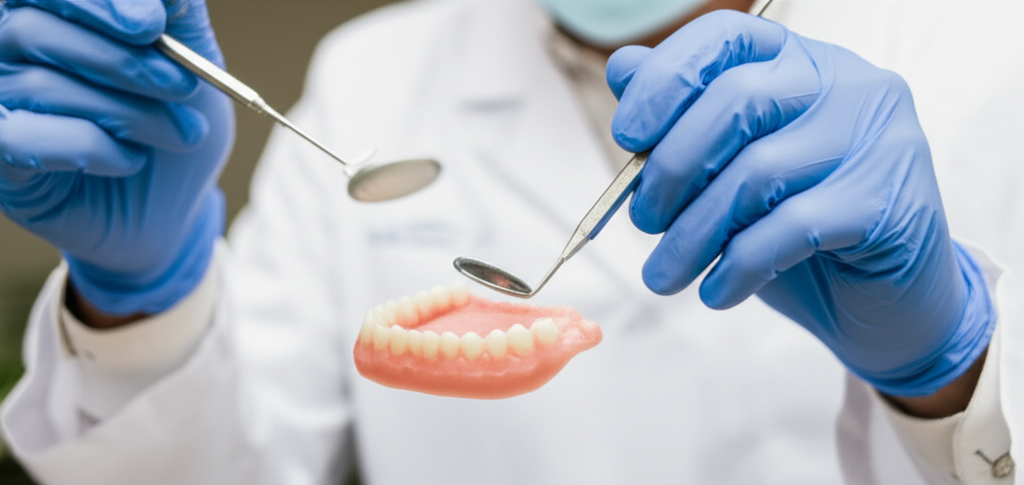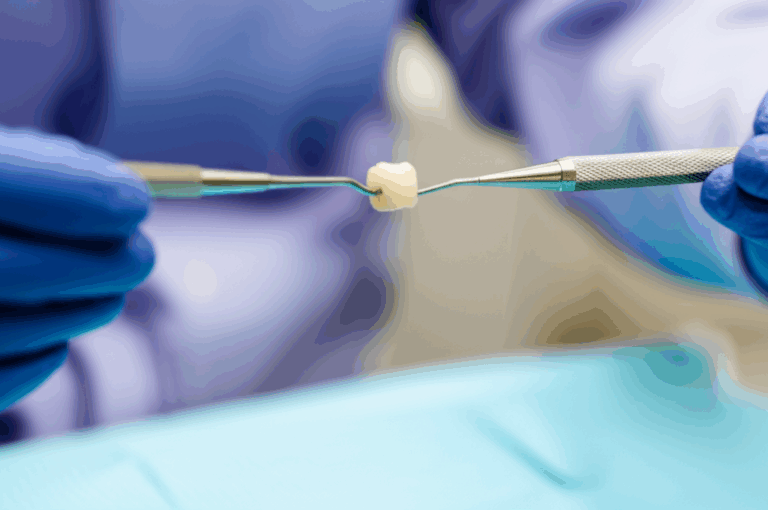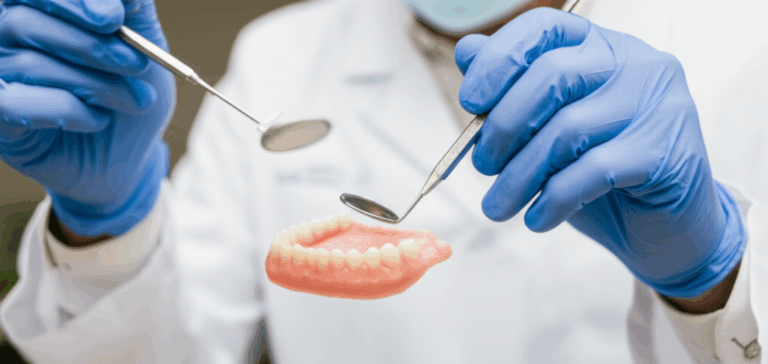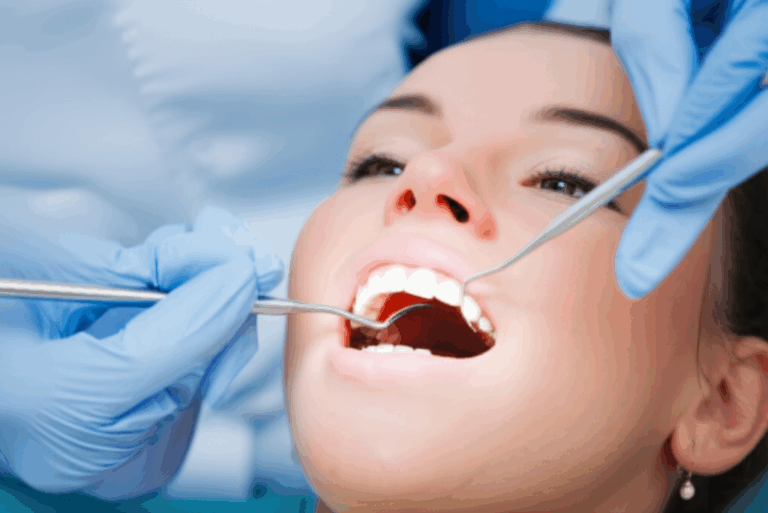
What Does “Board Certified” Mean for Your Dentist? An Essential Guide
That phrase—board certified—shows up everywhere, whether you’re picking a doctor, an orthodontist, or even reading the bio at your local dental office. But let’s be honest: when you see “board certified” next to a dentist’s name, does it really mean you’ll get better care? Or is it just another fancy-sounding title? Maybe you’re dealing with a tough dental problem or just want the best for your family, so you want to be sure. If you’ve ever wondered what board certification really means for dentists, how it compares to a license, and why it matters for your smile, you’re not alone.
Here’s the truth: knowing what “board certified” means can help you feel more sure and make better choices about your dental care—especially if you’re thinking about more advanced treatment or seeing a specialist.
Before we get into the details, remember: asking about your dentist’s qualifications isn’t just smart, it’s your right as a patient.
In This Article
- What Is Board Certification? Why It Matters For You
- Board Certification vs. Dental Licensure: What’s The Difference?
- How Does a Dentist Become Board Certified? The Journey Explained
- Key Benefits: Why Choose a Board Certified Dentist?
- What Are the 12 Dental Specialties? Who Can Be Board Certified?
- How To Check If Your Dentist Is Board Certified
- Common Myths & Misunderstandings About Board Certification
- The Takeaway: What Board Certification Means for Your Health
What Is Board Certification? Why It Matters For You
First, let’s answer the big question in clear, simple words.
Board certification is the highest level of professional recognition a dentist can get in a specialty—like orthodontics, oral surgery, pediatric dentistry, and others. It goes way beyond the basic steps needed to be a general dentist.
Why does this matter? Board certified specialists have finished extra years of training, passed very tough exams, and have shown other dentists that they meet the highest standards. When you see “board certified,” think of it as a badge showing real expertise. For basic needs—a cleaning, a small filling—any licensed dentist is ready to help you. But if you’re facing a tough problem, need braces, or require surgery, that added experience can really make a difference for your results and your peace of mind.
This doesn’t mean only board certified dentists are good at what they do. Many great general dentists have decades of skill and stay up to date. But board certification is about being the very best in a certain area—showing, through a hard process, that you’re at the very top in that specialty.
Think of it like sports. Anyone can play basketball, but only a few make it to the NBA All-Star team. Board certification is dental care’s All-Star badge.
Board Certification vs. Dental Licensure: What’s The Difference?
Not sure how licensure compares to board certification? You’re not alone! It’s one of the most confusing parts for many patients.
Dental Licensure: The “Ticket to Practice”
Every dentist you meet—no matter if they’re a general dentist, oral surgeon, or specialist—must have a dental license for the state where they work. This is the basic legal step. Think of licensure as the ticket that lets any dentist do dental work. Getting a license means:
- Graduating from an approved dental school (a DDS or DMD degree)
- Passing important exams
- Keeping up with licensing rules (like learning more every year)
With this license, a dentist can do all the usual jobs, from fillings to cleanings to pulling teeth. The license makes sure your dentist is safe and knows what they’re doing.
Board Certification: Leveling Up (Specialist Status)
Here’s where things jump up a notch. Board certification is an extra, tough credential that comes after years of focused training and a set of very hard exams. Only about 12% of U.S. dentists are board certified specialists.
A general dentist can be amazing at everyday care, but board certified specialists have proven—through hours and hours of higher-level training and tests—that they’re true experts in their area.
Simple Table: The Difference Made Easy
| Requirement | State Dental License | Board Certification (Specialist) |
|---|---|---|
| Needed to legally work? | Yes | No (extra, for specialists) |
| Who gives it? | State dental boards | National specialty boards |
| What’s required? | Dental degree + exams | Years of extra training + tough exams |
| Covers… | General dentistry | A chosen dental field |
| Works everywhere? | Just for each state | Valid throughout the U.S., respected by peers |
| Renewal: | Yes, with new learning | Recertification every 8-10 years (differences by field) |
How Does a Dentist Become Board Certified? The Journey Explained
Let’s break it down step by step, in everyday words. Getting board certified isn’t quick—or easy!
Step 1: Dental School & State License
Every dentist starts with four years of dental school, packed with classes, practice, and patient care. After graduation, the dentist gets a DDS (Doctor of Dental Surgery) or DMD (Doctor of Dental Medicine) degree. Then comes the state licensing exam—the “pass” to start regular dentistry.
Step 2: Years of Specialty Training
If a dentist wants to go beyond general work—like becoming an orthodontist, oral surgeon, or gum expert—they do a residency program. This is a dental “boot camp” lasting two to six years, depending on what they choose.
Residency is hard. Dentists work on challenging cases with experts guiding them, often in hospitals or schools, and learn deeply about their specialty.
Examples:
- Oral and Maxillofacial Surgery: 4-6 years
- Orthodontics or Endodontics: 2-3 years
- Pediatric Dentistry: 2+ years
Step 3: The Board Exams
Now, here’s where it gets tough. Board certification means passing a series of hard tests given by the specialty board. There are written tests (showing their deep knowledge), oral exams (explaining answers on the spot), and case reviews (proving they can safely handle tricky patients).
Some boards require dentists to show off real cases, sometimes with lots of paperwork and sometimes even live patient work.
It’s hard for a reason: about 60%–85% of dentists pass the written part the first time (depends on the specialty). Oral and hands-on tests are even harder—often taking more than one try.
Step 4: Lifelong Learning—Recertification
Unlike a single test, keeping board certification means more learning, peer checks, and sometimes more tests every 8–10 years. This keeps specialists sharp and current, so your care is always up to date.
Key Benefits: Why Choose a Board Certified Dentist?
So, what do these extra years of learning and testing mean for you? Here are the clear, real-life benefits.
1. Top-Level Skill for Tough Dental Problems
For hard or tricky dental needs, nothing beats real experience mixed with special training.
Example: If you need new teeth, dental implants, or gum disease care, a board certified specialist has worked on many cases just like yours—both in training and practice. They know how to handle surprises and give better results.
2. Higher Standards, Checked by Other Dentists
Specialty boards—like the American Board of Oral and Maxillofacial Surgery or American Board of Orthodontics—set a bar that’s above basic licensing. Certified dentists get reviewed by leaders in their field, so you know they’re not just meeting the basics—they’re often raising the bar.
3. Better, More Reliable Results
Board certified specialists stick to the latest research and proven ways of doing things. Their constant education means your treatment uses the newest info, often with safer, steadier, and longer-lasting results.
In many cases, treatments by specialists show higher success rates for things like root canals, dental implants, or fixing big bite problems. This means fewer repeat visits and can save you money and stress overall.
4. Special Know-How & New Tools
Board certified dentists use the best tools for their specialty. They might have newer machines—like 3D printed guides from a 3d dental lab or digital tools for super precise care.
5. Promise to Work Ethically and Care for You
Every board certified dentist promises to be fair, safe, and always put patients first. It’s not just about skill—it’s about caring, too.
What Are the 12 Dental Specialties? Who Can Be Board Certified?
Board certification in dentistry is only for certain specialties—not for general dentists. Here they are, with their boards:
The 12 ADA-Recognized Dental Specialties:
American Dental Board of Anesthesiology (ADBA)
American Board of Dental Public Health (ABDPH)
American Board of Endodontics (ABE)
American Board of Oral and Maxillofacial Pathology (ABOMP)
American Board of Oral and Maxillofacial Radiology (ABOMR)
American Board of Oral and Maxillofacial Surgery (ABOMS)
American Board of Oral Medicine (ABOM)
American Board of Orofacial Pain (ABOP)
American Board of Orthodontics (ABO)
American Board of Pediatric Dentistry (ABPD)
American Board of Periodontology (ABP)
American Board of Prosthodontics (ABProstho)
Tip: If you need very special work—like a full set of new teeth got from a crown and bridge lab, or a smile fix done using advanced prosthodontics—look for board certified specialists in that area for the best results.
How To Check If Your Dentist Is Board Certified
Not sure if your dentist or orthodontist is board certified? It’s simple to find out, and you should never feel awkward about asking.
1. Ask Directly
Specialists are proud of board certification! They’ll usually mention it in their office, on their card, or online bio. If you’re not sure, just ask: “Are you board certified in your specialty?”
2. Look for the Right Titles
- “Diplomate of the American Board of [Specialty]”
- “Board Certified [Specialty]”
These show they are certified. For example:
Diplomate of the American Board of Endodontics = board certified root canal expert.
3. Search the Official Board’s Website
All specialty boards keep a public list of board certified doctors. Usually there’s a “Find a Diplomate” or “Check Certification” tool. Just enter the dentist’s name and see their status.
Examples:
4. Professional Groups
The American Dental Association and other groups (like the American Association of Orthodontists) can also tell you if a provider is board certified.
5. State Licensing Board
While they don’t give board status, state dental boards check licensing and may note specialties or problems. It’s a good way to double-check.
Common Myths & Misunderstandings About Board Certification
There’s a lot of mix-ups out there. Let’s clear up some of the biggest ones.
Myth #1: “All Good Dentists Are Board Certified.”
Truth: Many good general dentists are not board certified because it’s only for specialists (like orthodontists, oral surgeons, etc.). General dentists must be licensed—absolutely—but board certification is about extra training in a certain field, not everyday care.
Myth #2: “Board Certification Is Just a Paper Title.”
Truth: Getting—and keeping—board certification is a real achievement. It shows a dentist has proved practical skill and up-to-date knowledge, all checked by other experts.
Myth #3: “Board Certification = State Dental License.”
Truth: Licenses and board certification are different. A license is the start; board certification is a tough finish—for those in certain fields.
Myth #4: “You Can’t Check Board Credentials Yourself.”
Truth: You can check certification online or ask directly. The process is open on purpose.
Myth #5: “It’s Only Important for Surgeons.”
Truth: Plenty of dental fields—like kids’ dentistry, root canals, and prosthodontics—offer board certification. It helps in lots of areas, especially for tricky cases or bigger treatment plans.
The Takeaway: What Board Certification Means For Your Health (And What To Do Next)
Let’s sum up, in plain language.
What did we learn?
- Board certification is not the same as a dental license. Every dentist must be licensed; only some, after more years of training and tests, can be board certified.
- Picking a board certified specialist adds trust and more skill—especially for hard or risky dental care.
- You have the right to ask about your dentist’s background and check if they’re board certified.
- Board certified specialists work hard to stay current with continued learning and new skills.
Your Healthy Takeaway: Easy Steps for Smart Dental Choices
- For standard care? Your licensed general dentist is ready to help.
- For tricky dental work—like dental implants (learn more about dental implant), big repairs, or braces—a board certified specialist can give you extra confidence.
- Don’t be shy: Ask your provider about their credentials and board status.
- Double-check online with the right specialty board, or ask your dentist for a referral to a board certified expert.
- Remember, great dental care often means teamwork—your general dentist, labs, and board certified specialists all working together for your best results.
Knowing what’s what isn’t just smart—it’s the best way to care for your health, your confidence, and your smile.
Frequently Asked Questions About Dental Board Certification
Q: Can general dentists be board certified?
No. Board certification is only for recognized specialties (see the ADA list above). General dentists can be great providers, but board certification is just for specialists.
Q: Do all specialists get board certified?
Not always. Board certification is extra and voluntary. Some older, experienced specialists may not have done it earlier, while most new specialists do.
Q: How long does board certification last?
Most certifications last 8–10 years, but specialists have to keep learning and meet tough rules. Recertification is required and standards are tough.
Q: Does it cost more to see a board certified specialist?
Prices depend more on the job—not the credential. In fact, the right specialist may help you avoid costly mistakes or repeated work, saving you money in the long run.
Q: How do I know what kind of specialist I need?
Ask your general dentist—they can suggest a board certified specialist if your situation needs extra skill, like surgery, kids’ care, or big smile makeovers. You can even find out more about dental specialties and their lab partners, such as a veneer lab if you’re considering a better smile.
Ready For Next Steps? Empower Yourself!
Your dental health story is your own. Whether you’re looking for the best cosmetic fix, solving a tough problem, or just curious about your dentist’s training, asking questions and understanding backgrounds is always a good idea. The more you know, the better you’ll feel at the dentist.
If you’re dealing with something big, fixing a failed procedure, or planning for a major change, don’t wait—ask about board certification. Knowing the facts and thinking ahead means you’re already taking care of your teeth and yourself.
And remember—your smile deserves skill, care, and honesty. That’s what board certification stands for.
This article was checked by a licensed dental professional and uses standards from the American Dental Association and the specialty boards named above. For more details or a custom assessment, schedule a talk with your dentist or a certified specialist today.
Sources:
- American Dental Association (ADA)
- American Board of Dental Specialties (ABDS)
- Commission on Dental Accreditation (CODA)
- Specialty Board Directory (as linked)
- Major dental health review journals and patient studies
Your healthiest, brightest smile begins with knowledge. Don’t be afraid to ask, check, and get the care you deserve!








